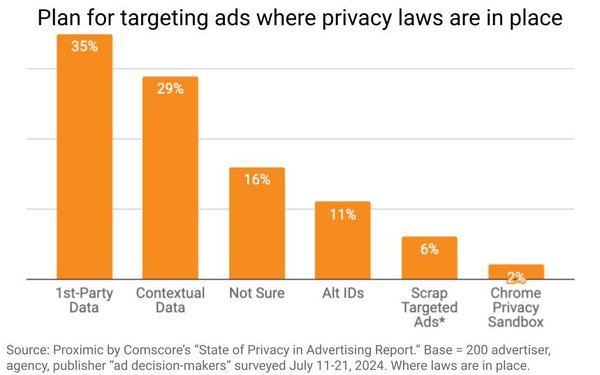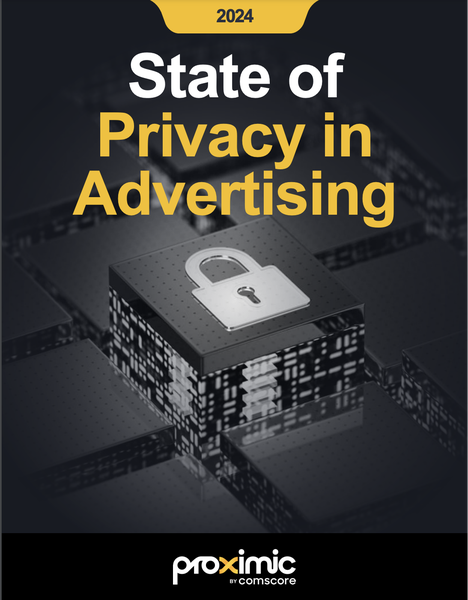
While first-party data ranks as the No. tactic being
used by ad decision-makers to target consumers in response to restrictive data privacy laws, contextual data is a close No. 2, according to findings of an ad industry survey released this morning by
Proximic by Comscore.
The findings, part of a just-released "State of Privacy in Advertising
Report," are based on surveys of 200 advertiser, agency and publishing execs conducted July 11-21, including the one above, which asked respondents how they were adapting their ad targeting
strategies in response to restrictive data privacy laws.
Interestingly, 16% said they aren't sure, while 6% said they are scrapping targeted advertising altogether in places that have passed
such laws.
advertisement
advertisement
Alternative identifiers such as the IAB Tech Lab's unified ID (UID) are gaining steam, while Google Chrome's controversial privacy sandbox has not become a significant factor among
the respondents.
The rapid resurgence of contextual targeting is noteworthy, because it was the primary way the ad industry targeted ads at consumers before the rise of digital IDs, including
cookies.
Other highlights from the report include:
- 88% of respondents indicated that they anticipate a moderate to significant impact on their ability to deliver personalized
advertising in regions with data privacy laws in place, with 28% already significantly adjusting parts of their advertising strategy.
Due to the fragmented nature of today’s data privacy laws, 38% of respondents have had difficulty keeping up with the details and implications of each new law, and 34% have
experienced challenges trying to apply differing ad strategies across regions with varying laws in place.
61% of
respondents expect audience targeting to bear the brunt of privacy law impacts, with 60% adjusting their targeting strategy to accommodate data privacy laws and 59% re-evaluating targeting datasets to
comply with new laws.
Respondents anticipate AI’s biggest role in maintaining effective targeted advertising while respecting data
privacy laws to be improving audience targeting (63% of respondents), followed by improving campaign measurement capabilities (52% of respondents).
43% of respondents indicated that recent privacy legislation has accelerated their plans to reduce reliance on cookies.
